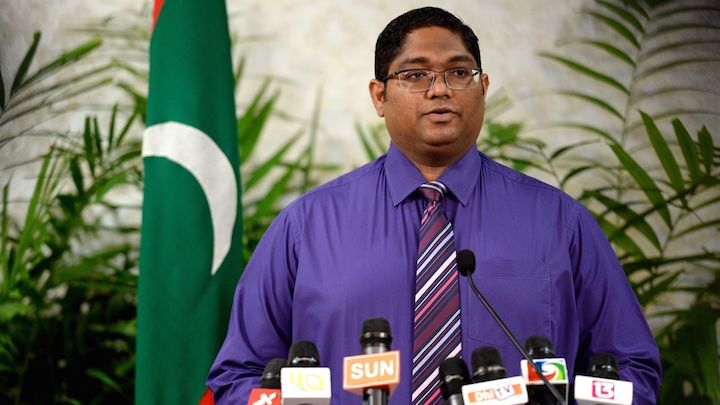Court reprimands attorney general for criticising ban on ex-Haveeru staff
The civil court reprimanded the AG for saying that a much-derided order barring former staff of newspaper Haveeru from working for any other media organisation is unconstitutional and cannot be enforced. Anil’s remarks are “invalid, unlawful, and cannot be acted upon,” the court said.

04 Jul 2016, 09:00
The civil court has reprimanded Attorney General Mohamed Anil for saying that a much-derided order barring former staff of newspaper Haveeru from working at any other media organisation for two years is unconstitutional and cannot be enforced.
Anil’s remarks are “invalid, unlawful, and cannot be acted upon,” reads a civil court order issued this afternoon.
Citing article 77 of the Judicature Act, the court said all state institutions and officials must comply with the ruling unless it is delayed or overturned upon appeal.
Judge Mohamed Haleem had ordered the home ministry and the broadcasting commission yesterday to take action against former staff working at other media organisations within seven days upon request by the Haveeru News Agency’s majority shareholders.
Become a member
Get full access to our archive and personalise your experience.
Already a member?
Discussion
No comments yet. Be the first to share your thoughts!
No comments yet. Be the first to join the conversation!
Join the Conversation
Sign in to share your thoughts under an alias and take part in the discussion. Independent journalism thrives on open, respectful debate — your voice matters.




